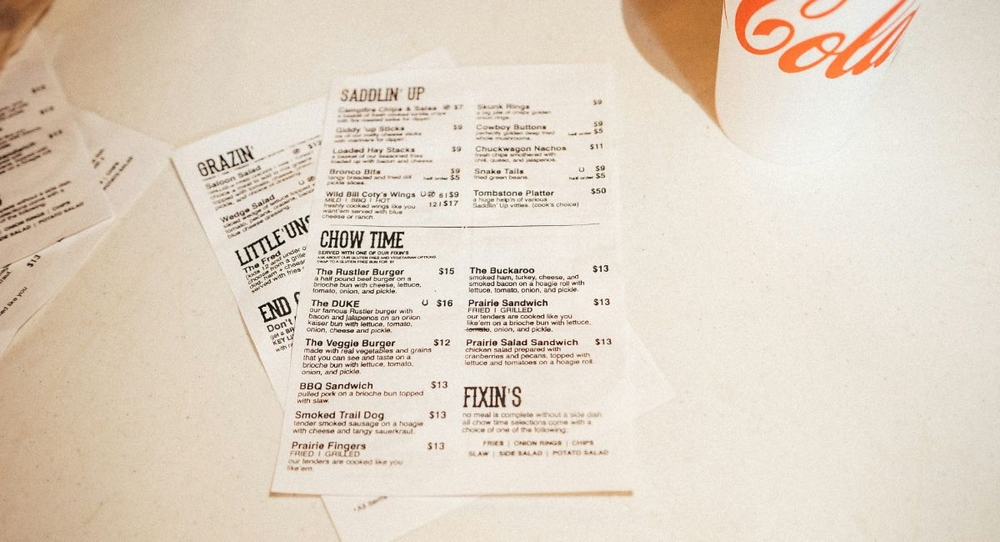Cost of Renting a Food Truck Explained
Table of Contents

The sizzle of the griddle, the rush of wind as you cruise the open road, and the hope of profits are all strong motivators for restaurateurs planning to start their own food trucks. But how much does it cost to rent a food truck?
Renting is often preferred over buying for those looking to break onto the mobile meal scene for its relatively low cost and commitment. Leasing such a large and powerful piece of equipment, however, also comes with unique challenges and expenses.
From different leasing options to insurance and maintenance, various costs affect the real total you’ll pay to rent a food truck. To give you a better idea of what your full tab may come to, we’re breaking down all the factors affecting food truck rental prices in this quick, handy guide. If you’re looking for more comprehensive food truck ideas, be sure to also explore our detailed resources section.
Different leasing options for food trucks
Food trucks bridge the gap between equipment, automobiles, and real estate—and, similar to these elements, you can lease a food truck rather than purchase one.
In general, longer leases for food trucks are less expensive than shorter ones.
So, if you’re trying to lease a food truck, but don’t like the price the rental company is quoting, consider countering with a longer contract at a lower rate. Over a quarter of property tenants have had success lowering their rent by employing this tactic, and it has the potential to work for food truck rentals as well.
However, food trucks are vehicles, so their leases are more similar to car payments. Usually, automobile leases come in terms of 24 to 36 months—after which the vehicle must be returned to the dealer.
But monthly rental rates aren’t the only costs of vehicle leases. Lessees may be liable to pay fees for:
- Acquisition
- Depreciation
- Disposition (disposal)
- Early lease termination
- Excess mileage
- Excessive wear-and-tear
- GAP (Guaranteed Auto Protection) coverage
- Sales/use taxes
- Security deposits
Dealerships and rental companies may charge any of these or similar fees, driving up the total price you’ll pay to lease your food truck.
For more freedom to shop around and try out different rentals, you may want to consider short-term, flexible leasing options before signing an extended contract. Keep in mind, however, that shorter leases tend to command higher monthly rates.
Insurance: the continual cost of coverage
Your lease won’t be the only monthly bill you incur while renting a food truck. Insurance is also a recurring cost that food truck proprietors must factor into their overall rental price.
As mentioned, food trucks are vehicles, but they’re also restaurants. This means they’ll likely need several types of insurance coverage to operate legally, including:
- A Business Owner’s Policy (BOP): This policy combines general liability and property insurance to cover theft or damage of your food truck equipment and inventory.
- Commercial Auto Insurance: Just like you need auto insurance for your personal car, you also need it on your food truck in case you get into an accident while out on the road.
- General Liability Insurance: This protects you and your business’s assets in the case of lawsuits and can help mitigate legal fees.
- Workers’ Compensation Insurance: A must if you plan to hire any employees, Workers’ Compensation Insurance provides medical and monetary benefits to people injured on the job.
- Liquor Liability Insurance: If you plan on offering alcohol out of your truck, a Liquor Liability insurance policy may be required under state law.
Insurance companies will often offer singular policies that package all these different types of coverage together. Regardless, such policies can add a pretty penny onto your food truck’s total monthly cost—and they’re not even the end of the recurring bills.

Accounting for maintenance
Depending on the specifics of your food truck’s lease, some maintenance may be covered by the lessor. In many cases, however, they’ll charge extra to service your vehicle through increased monthly payments or on a per-visit basis.
This leaves the lessee with the choice of where to service their truck—but also the final bill. Some common maintenance you’ll want to budget for includes:
- Oil changes
- Tire rotations
- New brake pads
- Air filter replacements
- Other parts and services not covered under the truck’s warranty
Additionally, you may be on the hook for any damages you cause to your rental vehicle, especially if it’s during an accident where you’re at fault.
If all these costs come as a shock and are causing you to rethink your food truck dreams, perhaps a more stationary food prep space is your pace. If so, CloudKitchens can help you get your food out to your hungry customers.
Swap your food truck for a CloudKitchen to meet your customers wherever they are
There’s no denying the electric atmosphere food trucks help create at festivals, tailgating parties, and other special events. They aren’t, however, the most efficient way of getting food to your restaurant’s fans.
With CloudKitchens, you can access shared commercial kitchen spaces that, in some ways, are similar to food trucks. They shirk the sit-down standard of traditional brick-and-mortar establishments in favor of bringing food directly to the customer.
Unlike food trucks, however, you have two to three times the square footage to work with and you don’t have to worry about a bunch of recurring monthly fees. CloudKitchens can also help with order fulfillment so that you can distribute meals anywhere in your city—or even across multiple urban areas.
If recurring monthly fees are throwing a wrench in your food truck dreams, consider the accessible, cost-effective alternative of operating on a food delivery model through CloudKitchens. Tour one of our kitchens today to get things cooking.
Explore ghost kitchen locations across the US:
- Ghost kitchens in San Francisco
- Ghost kitchens in LA
- Ghost kitchens in NYC
- Ghost Kitchens in Toronto
- Ghost Kitchens in Atlanta
- Ghost Kitchens in Dallas
- Ghost Kitchens in Chicago
- Ghost Kitchens in Denver
- Ghost Kitchens in Miami
| DISCLAIMER: This information is provided for general informational purposes only and the content does not constitute an endorsement. CloudKitchens does not warrant the accuracy or completeness of any information, text, images/graphics, links, or other content contained within the blog content. We recommend that you consult with financial, legal, and business professionals for advice specific to your situation. |
Sources:
Consumer News and Business Channel. How to negotiate for cheaper rent. https://www.cnbc.com/
Bankrate. The Basics Of A Car Lease Agreement. https://www.bankrate.com/
Consumer Reports. Guide to Car Lease Terms. https://www.consumerreports.org/
The Hartford Insurance. Food Truck Insurance. https://www.thehartford.com/
Board of Governors of the Federal Reserve System. Leasing vs. Buying: Maintenance Requirements. https://www.federalreserve.gov/
More insights & stories

